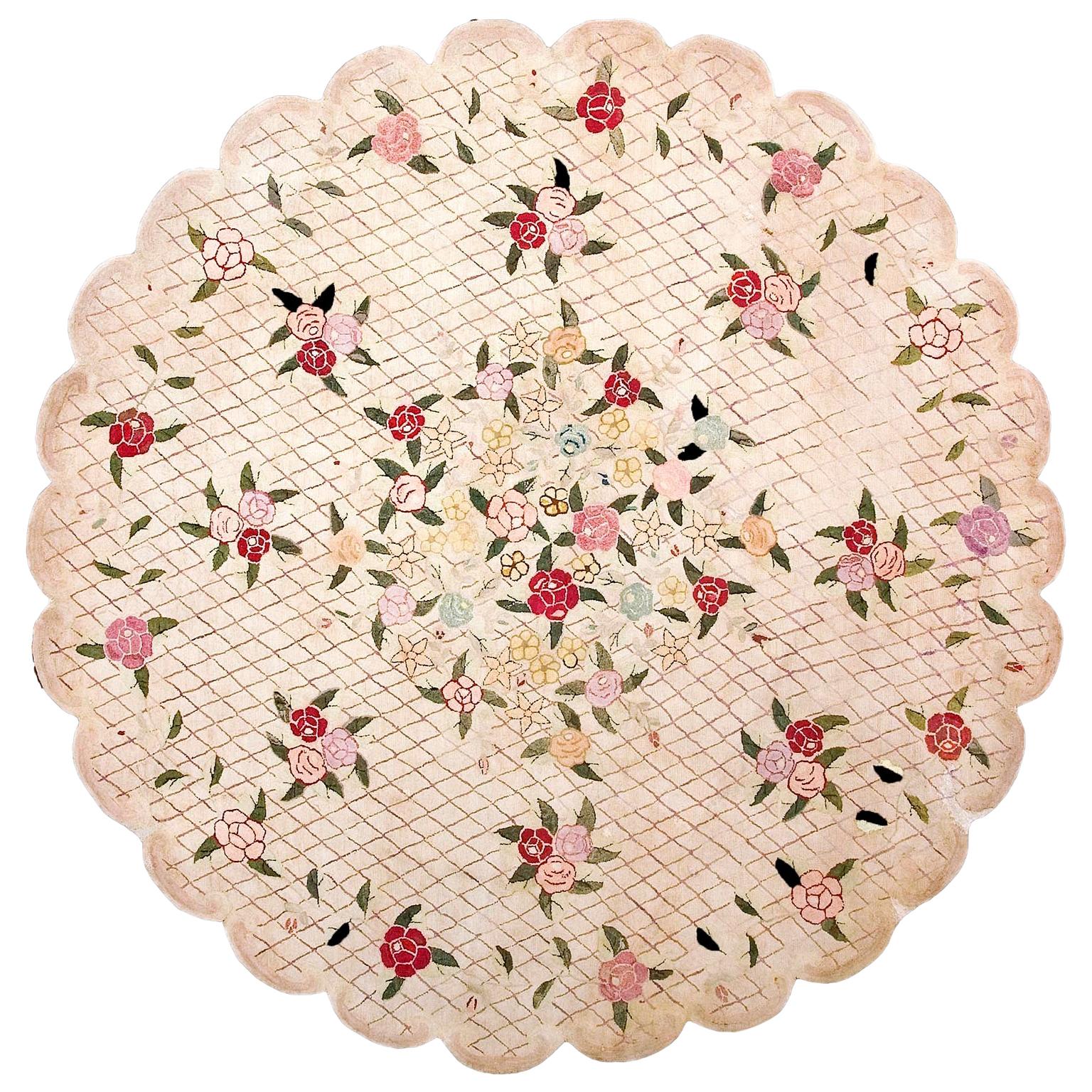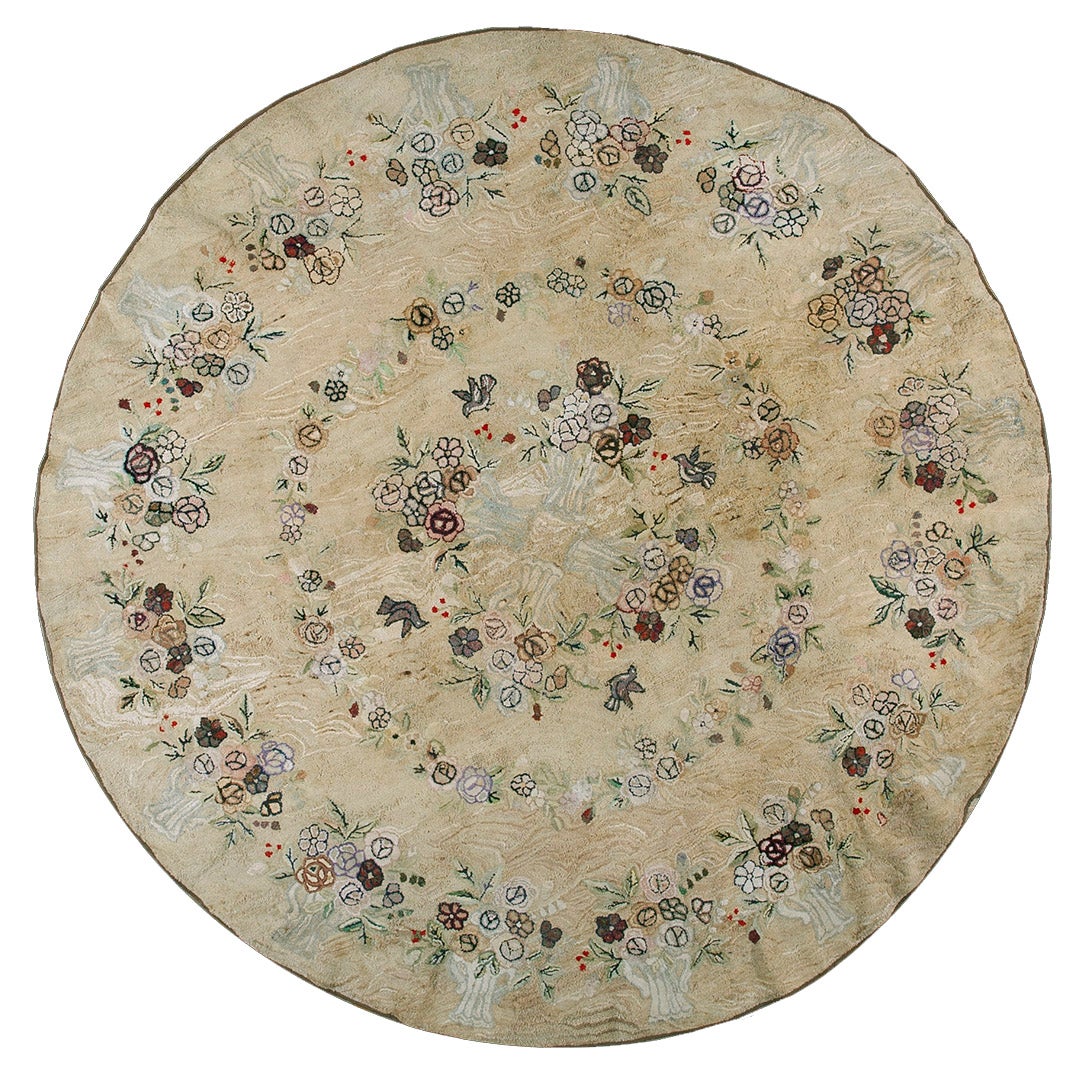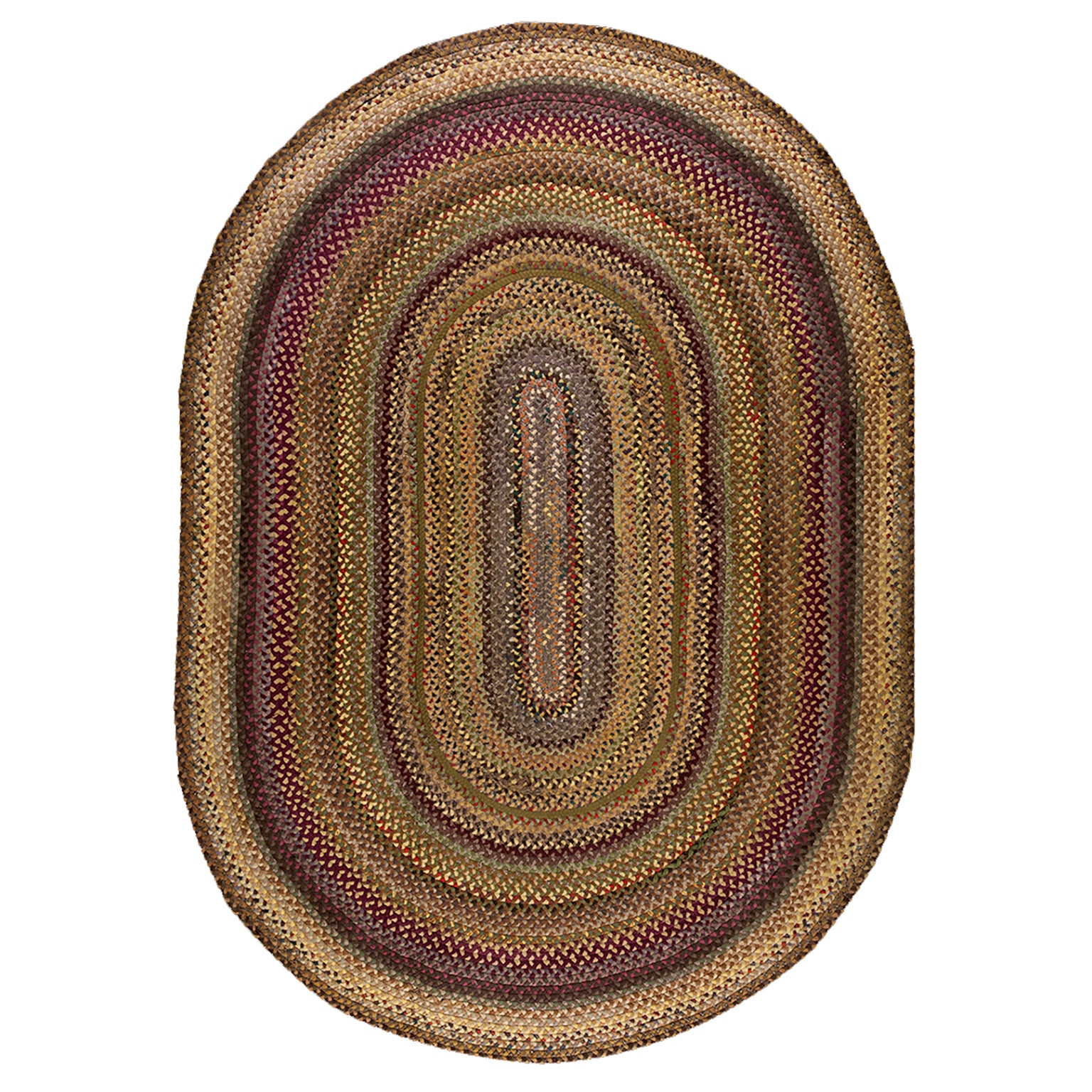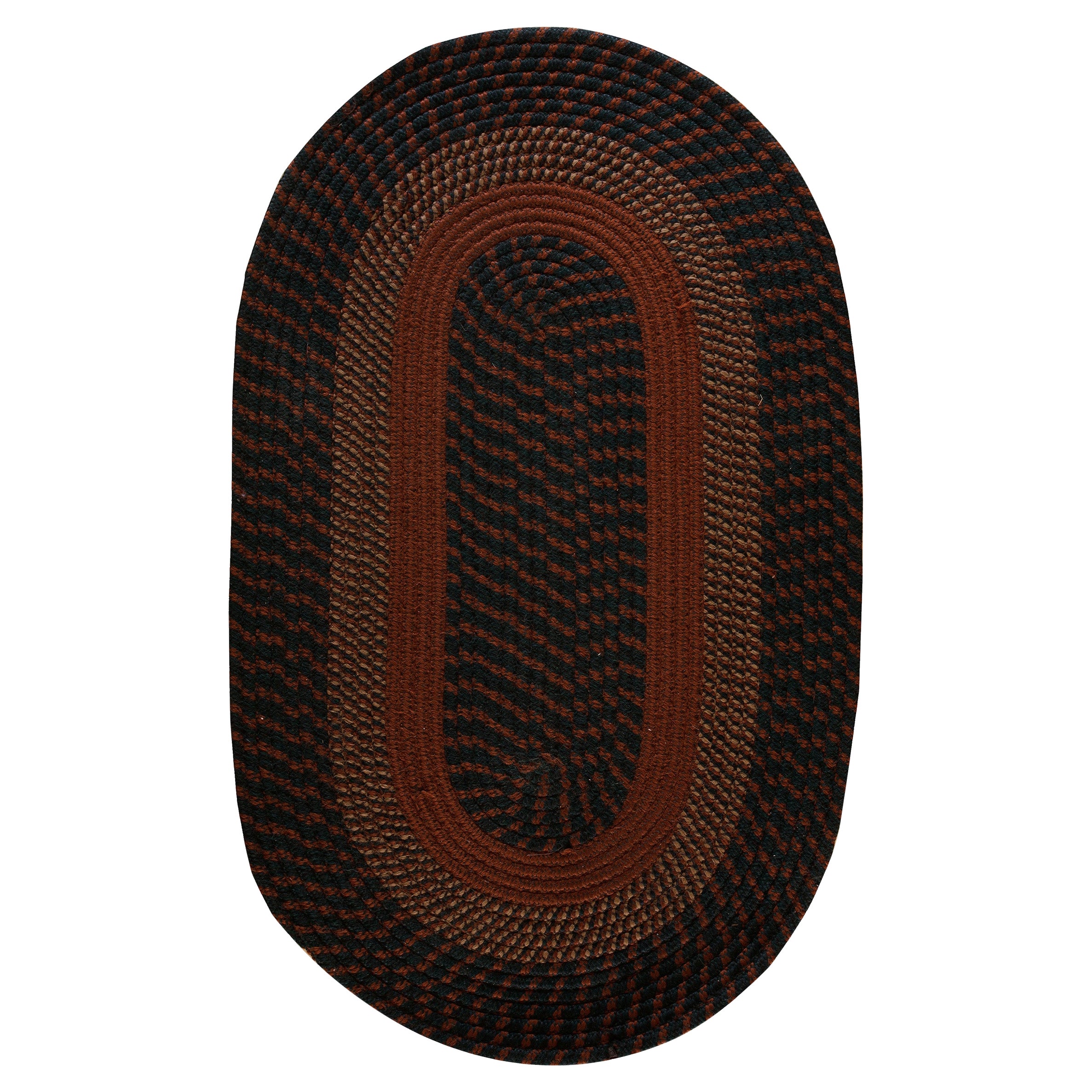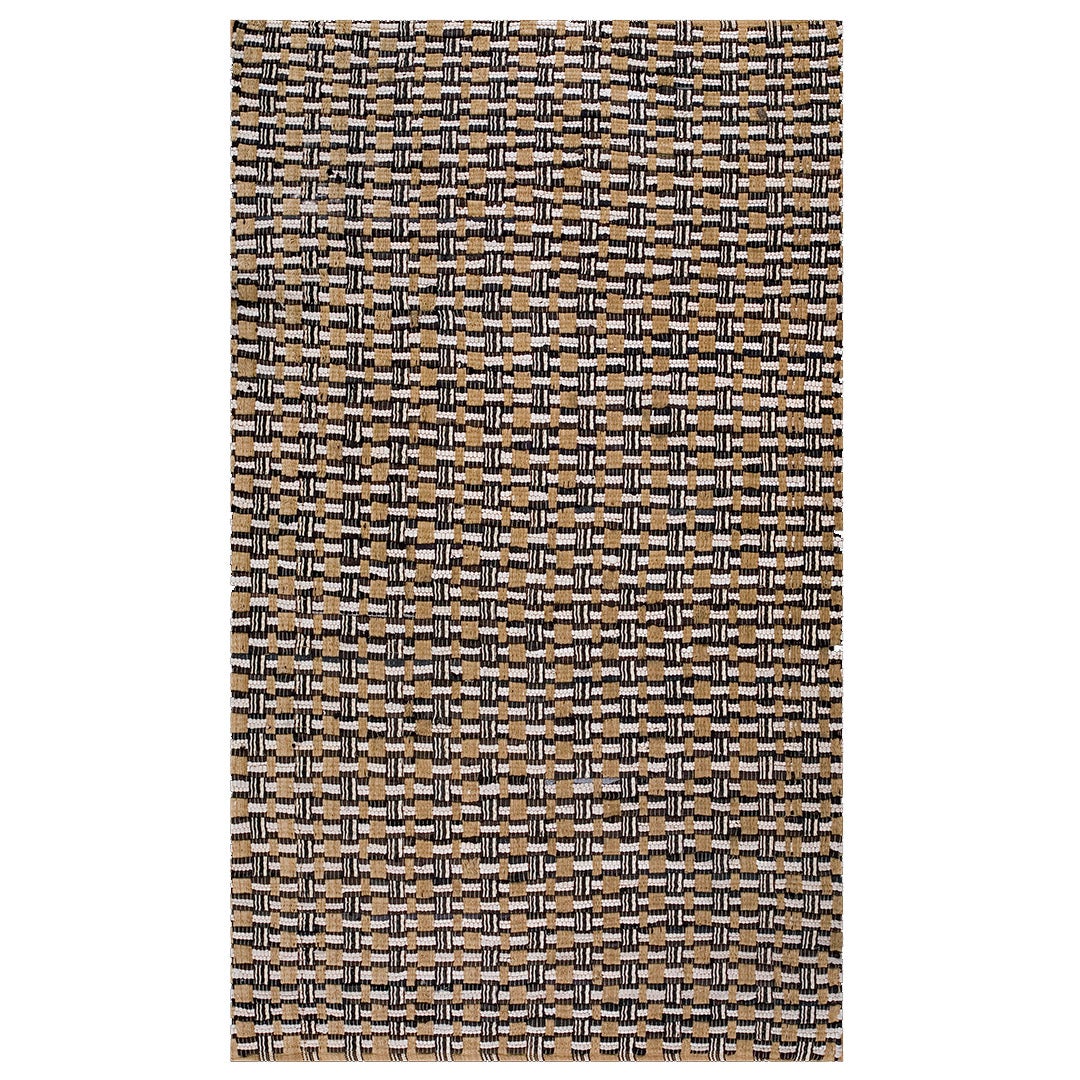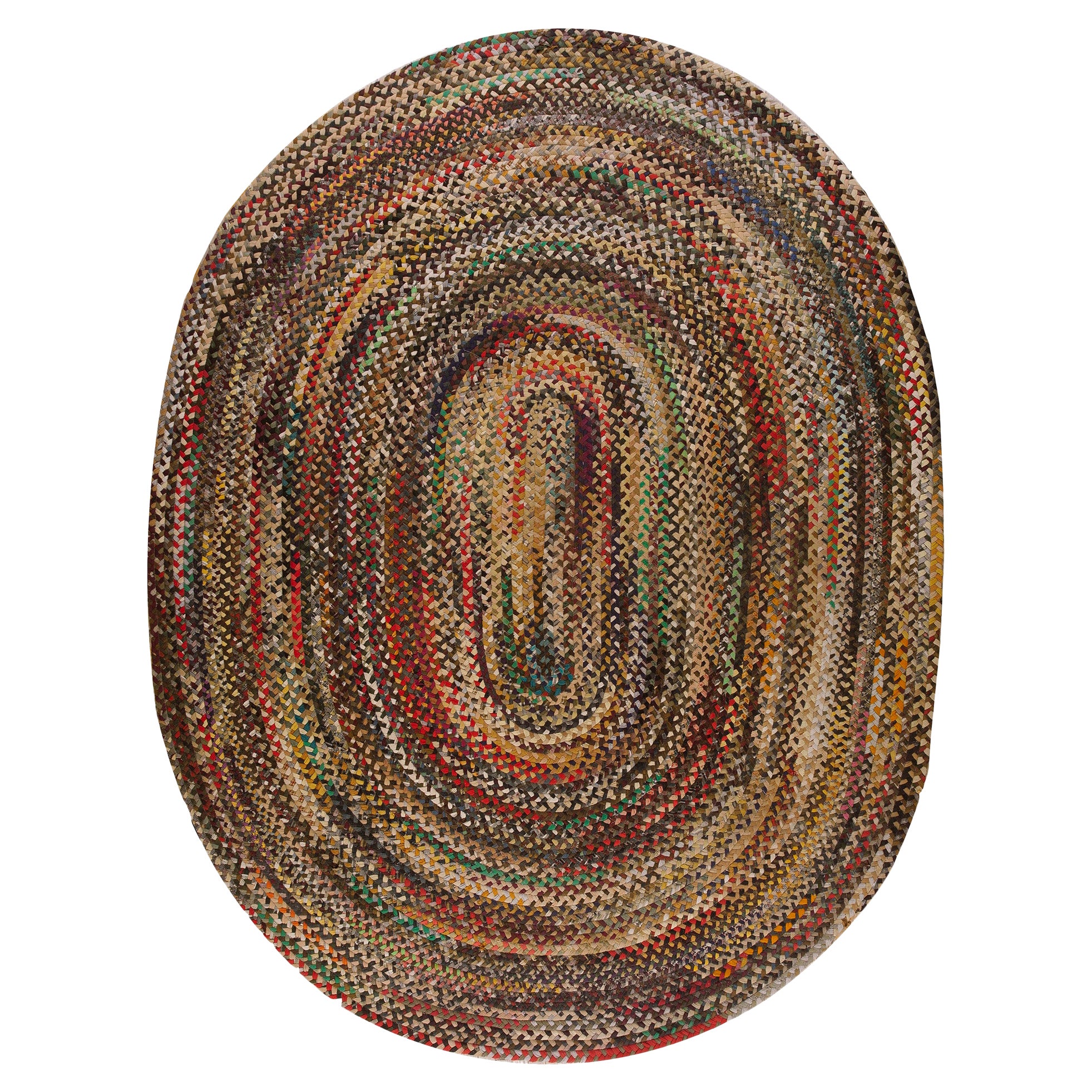Items Similar to Mid 20th Century American Braided Rug ( 9' x 12' 6" - 275 x 381 cm)
Want more images or videos?
Request additional images or videos from the seller
1 of 12
Mid 20th Century American Braided Rug ( 9' x 12' 6" - 275 x 381 cm)
About the Item
Mid 20th Century American Braided Rug ( 9' x 12' 6" - 275 x 381 cm)
- Dimensions:Width: 108 in (274.32 cm)Length: 150 in (381 cm)
- Materials and Techniques:
- Place of Origin:
- Period:
- Date of Manufacture:1950
- Condition:
- Seller Location:New York, NY
- Reference Number:
About the Seller
4.8
Platinum Seller
These expertly vetted sellers are 1stDibs' most experienced sellers and are rated highest by our customers.
Established in 1995
1stDibs seller since 2019
343 sales on 1stDibs
Typical response time: <1 hour
- ShippingRetrieving quote...Ships From: New York, NY
- Return PolicyA return for this item may be initiated within 3 days of delivery.
More From This SellerView All
- Early 20th Century American Hooked Rug ( 9' x 9' - 275 x 275 )Located in New York, NYEarly 20th Century American Hooked Rug ( 9' x 9' - 275 x 275 )Category
Vintage 1910s American Folk Art North and South American Rugs
MaterialsWool
- Early 20th Century American Hooked Rug ( 9' x 9' - 275 x 275 )Located in New York, NYEarly 20th Century American Hooked Rug ( 9' x 9' - 275 x 275 )Category
Vintage 1910s American Folk Art North and South American Rugs
MaterialsFabric, Wool
- Mid 20th Century American Braided Rug ( 7'6" x 10'8" - 228 x 320 cm )Located in New York, NYMid 20th Century American Braided Rug ( 7'6" x 10'8" - 228 x 320 cm )Category
Vintage 1940s American Country North and South American Rugs
MaterialsFabric, Wool
- Mid 20th Century American Braided Rug ( 2'8" x 4'3" - 80 x 130 cm )Located in New York, NYMid 20th Century American Braided Rug ( 2'8" x 4'3" - 80 x 130 cm )Category
Mid-20th Century American North and South American Rugs
MaterialsWool
- Mid 20th Century American Braided Rug ( 5' x 8' - 1753 x 244 )Located in New York, NYMid 20th Century American Braided Rug ( 5' x 8' - 1753 x 244 )Category
Vintage 1950s American North and South American Rugs
MaterialsWool
- 1940s American Braided Rug ( 9' x 11' 6" - 275 x 350 cm )Located in New York, NY1940s American Braided Rug ( 9' x 11' 6" - 275 x 350 cm )Category
Vintage 1940s American Country North and South American Rugs
MaterialsWool
You May Also Like
- Oval Mid-20th Century Handmade American Braided Room Size CarpetLocated in New York, NYA vintage American Braided oval room size carpet handmade during the mid-20th century. Measures: 9' 5" x 12' 3" North American has never developed a unified handmade rug tradition, but rather it is the unassimilated confluence of several. From Mexico comes the Saltillo serape wearing blanket, and this stimulates the Navajo and Rio Grande (Colorado) weavers, first as blankets, then as rugs. The thrifty habits of rural America gave rise to the New England (and Western Canadian) hooked rug types, while the farmers of the Midwest recycled their disused garments into braided and rag rugs. The closest to a real ongoing tradition are the Southwestern (New Mexican) Navajo rugs. By the 1860’s the native tribes were weaving wearing blankets with wool from the Spanish churro sheep. These were in stripe design, with combinations of undyed wool with cochineal reds and indigo blues. The multi-phase “Chief’s Blankets” from the 1870’s-80’s are a natural outgrowth of these. Machine spun red wool from Germantown in Pennsylvania appeared in the 1870’s with a bright red hitherto unobtainable. The weavers loved it and blankets appeared with bright reds, generally aniline, in “eye dazzler” patterns. Anglo traders established posts beginning in the 1890’s. Navajo weavings were perfect accompaniments not only for Western-themed decors, but for East Coast apartments, only they needed to be thicker and more rug like to be truly accepted. The traders brought Caucasian and Turkish village rugs to copy, borders were introduced and central medallions devised. The weavers continued to create on vertical looms, with a shared warp (dovetailing) weft structure to avoid slits. The warps were cotton string. Sizes were generally scatters, but occasionally a special order came in, hence antique room size Navajos are very rare and very pricey. Distinct village/pueblo styles developed. Among the best are: Two Grey Hills (considered the tightest, closest of all Navajo weaving), Crystal Springs and Ganado. Certain new patterns such as the “Storm pattern” with jagged lightning bolts emanating from a dark cloud developed. The Yei rug with dancing Kachina doll figures became popular. The palette has been expanded beyond the classic grey, tan, dark brown and cream natural wool combination to again include reds, blue and greens. Navajo pictorials include: American flags, trains and automobiles, domestic and local scenes and scenery. Individual artist weavers now command gallery shows and correspondingly elevated prices. There are several levels of Navajo work, and antique and vintage scatters with simple flat designs, medium weaves and tritonal palettes, and in good floor worthy condition are still available reasonably. The Native American weaving tradition extends into Colorado with two piece scatters with sharp sawtooth medallions and striped end borders, with wool tapestry weave on cotton warps. These descend from the Saltillo blankets...Category
Mid-20th Century American American Classical North and South American Rugs
MaterialsWool, Yarn
- Mid-20th Century Handmade American Rag RugLocated in New York, NYA vintage American rag rug handmade during the mid-20th century. Measures: 3' 6" x 5' 8" North American rugs & carpets: North American has never developed a unified handmade rug tradition, but rather it is the unassimilated confluence of several. From Mexico comes the Saltillo serape wearing blanket, and this stimulates the Navajo and Rio Grande (Colorado) weavers, first as blankets, then as rugs. The thrifty habits of rural America gave rise to the New England (and Western Canadian) hooked rug types, while the farmers of the Midwest recycled their disused garments into braided and rag rugs. The closest to a real ongoing tradition are the Southwestern (New Mexican) Navajo rugs. By the 1860s the native tribes were weaving wearing blankets with wool from the Spanish churro sheep. These were in stripe design, with combinations of undyed wool with cochineal reds and indigo blues. The multi-phase “Chief’s Blankets” from the 1870s-80s are a natural outgrowth of these. Machine spun red wool from Germantown in Pennsylvania appeared in the 1870s with a bright red hitherto unobtainable. The weavers loved it and blankets appeared with bright reds, generally aniline, in “eye dazzler” patterns. Anglo traders established posts beginning in the 1890s. Navajo weavings were perfect accompaniments not only for Western-themed decors, but for East Coast apartments, only they needed to be thicker and more rug like to be truly accepted. The traders brought Caucasian and Turkish village rugs to copy, borders were introduced and central medallions devised. The weavers continued to create on vertical looms, with a shared warp (dovetailing) weft structure to avoid slits. The warps were cotton string. Sizes were generally scatters, but occasionally a special order came in, hence antique room size Navajos are very rare and very pricey. Distinct village/pueblo styles developed. Among the best are: Two Grey Hills (considered the tightest, closest of all Navajo weaving), Crystal Springs, and Ganado. Certain new patterns such as the “Storm pattern” with jagged lightning bolts emanating from a dark cloud developed. The Yei rug with dancing Kachina doll figures became popular. The palette has been expanded beyond the classic grey, tan, dark brown, and cream natural wool combination to again include reds, blues, and greens. Navajo pictorials include American flags, trains, and automobiles, domestic and local scenes and scenery. Individual artist weavers now command gallery shows and correspondingly elevated prices. There are several levels of Navajo work, and antique and vintage scatters with simple flat designs, medium weaves, and tritonal palettes, and in good floor worthy condition are still available reasonably. The Native American weaving tradition extends into Colorado with two-piece scatters with sharp sawtooth medallions and striped end borders, with wool tapestry weave on cotton warps. These descend from the Saltillo blankets...Category
Mid-20th Century American Folk Art North and South American Rugs
MaterialsWool, Cotton, Yarn
- Mid-20th Century Handmade American Braided Round / Circular Accent CarpetLocated in New York, NYA vintage American Braid round/circular accent rug handmade during the mid-20th century. Measures: 7' 1" x 7' 1".Category
Mid-20th Century American American Classical North and South American Rugs
MaterialsWool, Yarn
- Mid-20th Century Handmade American Folk Rag RugLocated in New York, NYA vintage American folk rag rug in accent rug format handmade during the mid-20th century. Measures: 5' 10" x 8' 7".Category
Mid-20th Century American Folk Art North and South American Rugs
MaterialsWool
- Mid-20th Century Hooked Rug from North AmericaLocated in West Hollywood, CAThis vintage handwoven North American Hooked rug has an overall field of gently waving vertical polychrome strokes of green, blue, purple, pink, red and black, on a beige background.Category
Mid-20th Century North American Mid-Century Modern North and South Ameri...
MaterialsWool
- Galerie Shabab Collection Mid-20th Century American Braided Room Size CarpetLocated in New York, NYA vintage American Braided room size carpet handmade during the mid-20th century. Measures: 9' 1" x 12' 10".Category
Mid-20th Century American American Classical North and South American Rugs
MaterialsWool
Recently Viewed
View AllMore Ways To Browse
American Vintage Fabric
Mid Century American Rug
6 X 12 Rug
6 X 12 Rugs
Rug 6x12
12x6 Rug
6X9 Vintage Rug
9X12 Vintage Rug
Mid Century Rug 9 12
9 X 12 Mid Century Rugs
6x12 Vintage Rug
Retro Braided Rugs
Retro Braided Rug
1930s Navajo Rugs
Two Grey Hills Navajo
1920s Navajo Rugs
Rugs Graffiti
South American Hand Woven Tapestries
